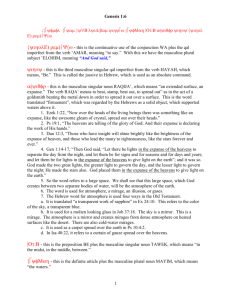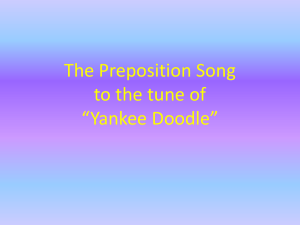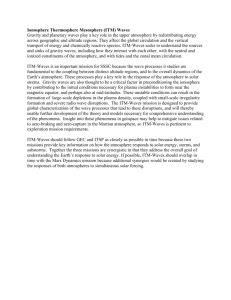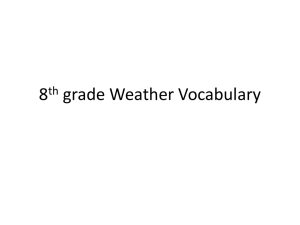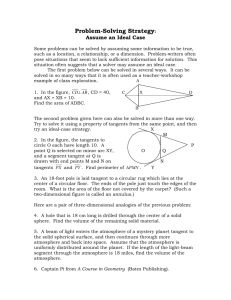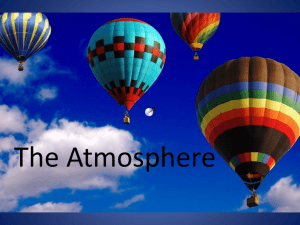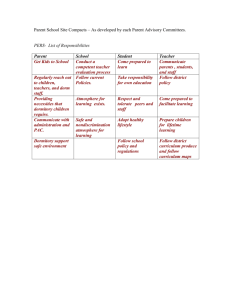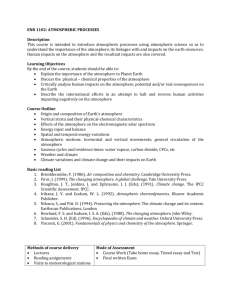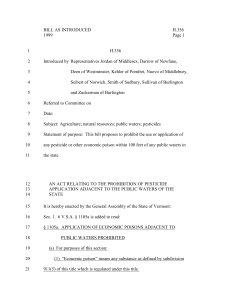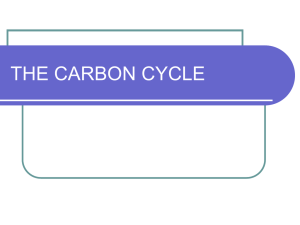Gen1_7 - Amador Bible Studies
advertisement
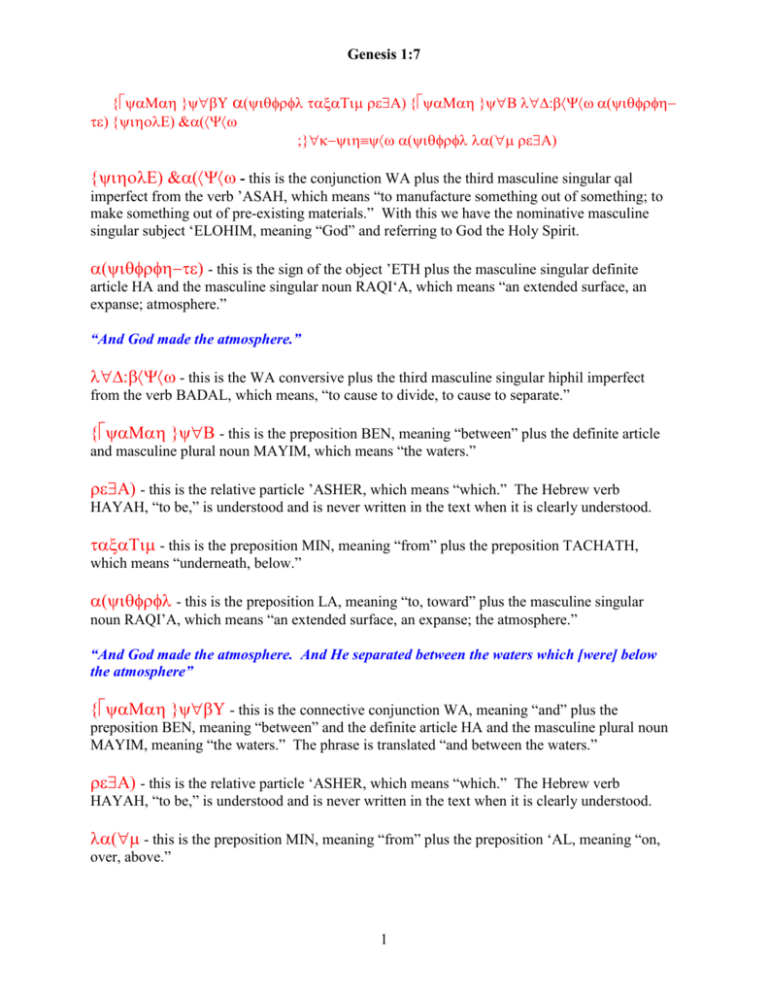
Genesis 1:7 - this is the conjunction WA plus the third masculine singular qal imperfect from the verb ’ASAH, which means “to manufacture something out of something; to make something out of pre-existing materials.” With this we have the nominative masculine singular subject ‘ELOHIM, meaning “God” and referring to God the Holy Spirit. - this is the sign of the object ’ETH plus the masculine singular definite article HA and the masculine singular noun RAQI‘A, which means “an extended surface, an expanse; atmosphere.” “And God made the atmosphere.” - this is the WA conversive plus the third masculine singular hiphil imperfect from the verb BADAL, which means, “to cause to divide, to cause to separate.” - this is the preposition BEN, meaning “between” plus the definite article and masculine plural noun MAYIM, which means “the waters.” - this is the relative particle ’ASHER, which means “which.” The Hebrew verb HAYAH, “to be,” is understood and is never written in the text when it is clearly understood. - this is the preposition MIN, meaning “from” plus the preposition TACHATH, which means “underneath, below.” - this is the preposition LA, meaning “to, toward” plus the masculine singular noun RAQI’A, which means “an extended surface, an expanse; the atmosphere.” “And God made the atmosphere. And He separated between the waters which [were] below the atmosphere” - this is the connective conjunction WA, meaning “and” plus the preposition BEN, meaning “between” and the definite article HA and the masculine plural noun MAYIM, meaning “the waters.” The phrase is translated “and between the waters.” - this is the relative particle ‘ASHER, which means “which.” The Hebrew verb HAYAH, “to be,” is understood and is never written in the text when it is clearly understood. - this is the preposition MIN, meaning “from” plus the preposition ‘AL, meaning “on, over, above.” 1 Genesis 1:7 - this is the preposition LA, meaning “to, toward” plus the masculine singular noun RAQI‘A, which means “an extended surface, an expanse; the atmosphere.” “And God made the atmosphere. And He separated between the waters which [were] below the atmosphere and between the waters which were above the atmosphere.” - this is the conjunctive particle WA plus the qal imperfect third masculine singular from the verb HAYAH, meaning “and it was.” With this we have the conjunction KEN (pronounced CANE), which means “thus, so.” Gen 1:7 corrected translation “And God made the atmosphere. And He separated between the waters, which were below the atmosphere, and between the waters, which were above the atmosphere. And it was so.” Explanation: 1. The verb ‘ASAH tells us that God the Holy Spirit made the atmosphere between the two sets of water out of existing materials. This was not an original creation out of nothing. That would require the verb BARA’. 2. After making the atmosphere of the earth, the Holy Spirit separates the waters of the ocean, which are below the atmosphere on the surface of the earth from the waters, which are above the atmosphere. Psa 148:4, “Praise Him, highest heavens, And the waters that are above the heavens!” a. The waters above the atmosphere provided perfect protection for the creatures that would live on the earth from the harmful ultraviolet rays of the sun. b. These waters also provided the rain for forty days and forty nights of Gen 7:4. The earth was not flooded by this rain. The water that flooded the earth came from under the surface of the earth. There was not enough water in the waters above the earth to flood the earth. Gen 7:11-12, “In the six hundredth year of Noah's life, in the second month, on the seventeenth day of the month, on the same day all the fountains of the great deep burst open, and the floodgates of the sky were opened. The rain fell upon the earth for forty days and forty nights.” c. What kept this water canopy above the atmosphere? Why didn’t the water just fall to the earth? It was just far enough from the earth to be held by the earth’s gravitational pull to not float away into space, but it was too far away to be pulled back to the surface of the earth. God the Holy Spirit positioned it perfectly. d. Wouldn’t this mass of water block out the light from the sun, the moon, and the stars? No, not if the water canopy was in the form of water vapor. Also water is clear. It has no color. The color of blue in water comes from the mirror effect of the color of the sky on the water. The color of green in water comes from the algae, which lives in the water. e. This upper mass of water was not in the form of clouds. There were no clouds until after the flood. There was no rain prior to the flood of Gen 7. All the water necessary for plant life came from under the surface of the earth. (1) Gen 2:5-6, “Now no shrub of the field was yet in the earth, and no plant of the field had yet sprouted, for the Lord God had not sent rain upon the earth, and there was no man 2 Genesis 1:7 to cultivate the ground. But a mist used to rise from the earth and water the whole surface of the ground.” (2) Job 38:8-11, "Or who enclosed the sea with doors When, bursting forth, it went out from the womb [the inner cavity of the earth which stored the flood waters]; When I made a cloud its garment [God created clouds during the flood from the left over water vapor in the upper waters of the canopy] And thick darkness its swaddling band, And I placed boundaries on it And set a bolt and doors [the oceans used as the doors of Tartarus and Torments], And I said, 'Thus far you shall come, but no farther; And here shall your proud waves stop'?” 3
